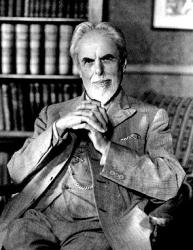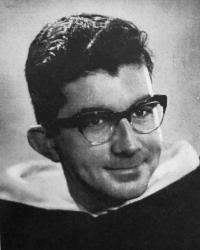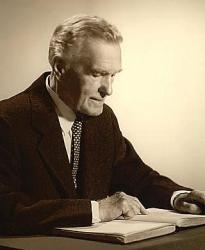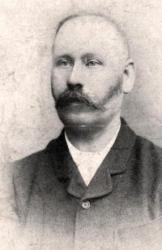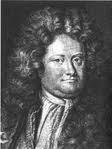
1654 - 1699 Person Name: Friedrich R. L. von Canitz (1654-1699) Topics: Service for the Lord's Day After Creed Author of "Come, My Soul, You Must Be Waking" in The Worshipbook Friedrich Rudolph Ludwig von Canitz, German poet and diplomant, was born at Berlin, November 27, 1654. He studied at the universities of Leyden and of Leipzig. After extensive travels in Europe, he was appointed groom of the bedchamber to the elector Frederick William of Brandenburg. In 1680, he became councilor of legation, then privy councilor, and was finally created a baron of the empire. He died in Berlin on August 11, 1699. His poems, which did not appear until after his death, are for the most part dry and stilted, based upon Latin and Greek models, but they were, nevertheless, a healthy influence and counterbalance to the coarseness of contemporary poetry. The spiritual poems, 24 in number, are his best work. They were first published anonymously after his death, edited by Joachim Lange as Nebenstunden unterschiedener Gedichte, 1700.
--The Hymnal 1940 Companion
=====================
Canitz, Friedrich Rudolph Ludwig, Freiherr von, son of Ludwig v. Canitz, privy and legal counsellor at Berlin; was born at Berlin, Nov. 27,1654, a few months after his father's death. After studying at the Universities of Leyden and Leipzig, he made in 1675-77 a tour in Italy, France, England, and Holland. In 1677 he was chosen gentleman of the bedchamber by the Elector Friedrich Wilhelm, and accompanied him in his campaigns in Pomerania, &c. He was then, in 1680, appointed chief magistrate of the district of Zossen and Trebbin, in the Mittelmark, and in 1681 counsellor of the Court and Legation. After a successful embassy to Frankfurt, 1682, he was appointed in 1683 chief magistrate of Miihlenhoff and Muhlenbeck. He executed many important missions under Friedrich Wilhelm and his successor Friedrich III., was a privy counsellor, and received in 1698 the dignity of Baron from the Emperor Leopold I. He died at Berlin, Aug. 11, 1699 (Koch, iv. 238-248; Allg. Deutsche Biographie, iii. 756, the latter dating his death Aug. 1). His hymns were first published posthumously, and without his name. They were edited by Dr. Joachim Lange, Rector of the Berlin Gymnasium, as Nebenstunden unterschiedener Gedichte, Berlin, 1700. Of the 24 religious poems, only 2 have continued in German common use, viz.:—
i. Gott, du lässest mich erreichen. Evening. 1700, as above, p. 6, in 6 stanzas. Translated as: "Father! hear me humbly praying" (beginning with st. ii. "Neige dich zu meinen Bitten "), by H. J. Buckoll, 1842, p. 99.
ii.. Seele du musst munter werden. Morning. This beautiful hymn, the mirror of his life, was first published 1700 as above, p. 3, in 14 stanzas of 6 lines. Included as No. 795 in Freylinghausen's Neues geistreiches Gesang-Buch, 1714, and as No. 471 in the Unverfälschter Leider 1851. The translations in common use are:—
1. Come, my soul, thou must be waking. A very good translation by H. J. Buckoll, omitting stanzas ii., iv., viii., given in a note at p. 456 of Dr. Arnold's Christian Life: its Cause, its Hindrances, and its Helps. London, 1841. The note is to a passage in Sermon vi., on Col. iii. 3, dated March, 1840, in which Dr. Arnold says:—
”Some may know the story of that German nobleman [v. Canitz] whose life had been distinguished alike by genius and worldly distinctions, and by Christian holiness; and who, in the last morning of his life, when the dawn broke into his sick chamber, prayed that he might be supported to the window, and might look once again upon the rising sun. After looking steadily at it for some time, he cried out, "Oh! if the appearance of this earthly and created thing is so beautiful and quickening, how much more shall I be enraptured at the sight of the unspeakable glory of the Creator Himself." That was the feeling of a man whose sense of earthly beauty bad all the keenness of a poet's enthusiasm, but who, withal, had in his greatest health and vigour preserved
the consciousness that his life was hid with Christ in God; that the things seen, how beautiful soever, were as nothing to the things which are not seen (p. 61).
Of the translation Dr. Arnold says, "For the greatest part I am indebted to the kindness of a friend," which means that portions (viz. st. i., 11. 1-3, and one or two expressions) are taken from the anonymous version of 1838 (see below). In 1842 Buckoll included it in his Hymns from the German, p. 36, altering stanza iii. 1. 3, xii. line 1. 1-3, and xiii. It is the text in Dr. Arnold's sermons which has passed into common use in the following forms, the references being to the translation of the German stanzas.
(1) St. i., v.-vii., ix.-xi., American Episcopal Hymns for Church and Home, 1860, altered.
(2) St. i., vi., vii., ix.-xii., in the Salisbury Hymn Book, 1857, and Kennedy, 1863. The Anglican Hymn Book., 1871, and the Evangelical Hymnal, N. Y., 1880, omit st. xii.
(3) St. i., vi., vii., ix.,xi., xii., considerably altered and with an added doxology in Sarum, 1868. This text in full, or abridged, is found in Church Hymns, 1871; Hymnary, 1872; Stevenson's Hymns for Church and Home, 1873; Baptist Hymnal, 1879, and others; and in America in the Episcopal Hymnal, 1871; Laudes Domini, 1884.
(4) St. i., vi., vii., ix.-xii., xiv., in Harrow School Hymn Book., 1855,1866; Marlborough College, 1869, &c.
(5) St. i., vii., ix., xi., with an added stanza in Book of Common Praise, 1863; and in G. S. Jellicoe's Collection, 1867.
2. Come, my soul, awake, 'tis morning. A good translation, omitting stanzas ii., iv., viii., by Miss Winkworth in her Lyra Germanica, 1855, 1st series, p. 210, and thence, retaining only the translations of stanzas i., vi., vii., xi.-xiii., in her Choral Book for England, 1863.
Another translation is:—
"Come, my soul! thou must be waking," in the British Magazine, July, 1838, p. 21. From this, st. i., 11. 1-3, and one or two expressions were adopted by Buckoll. [Rev. James Mearns, M.A.]
--John Julian, Dictionary of Hymnology (1907)
Friedrich von Canitz


 My Starred Hymns
My Starred Hymns